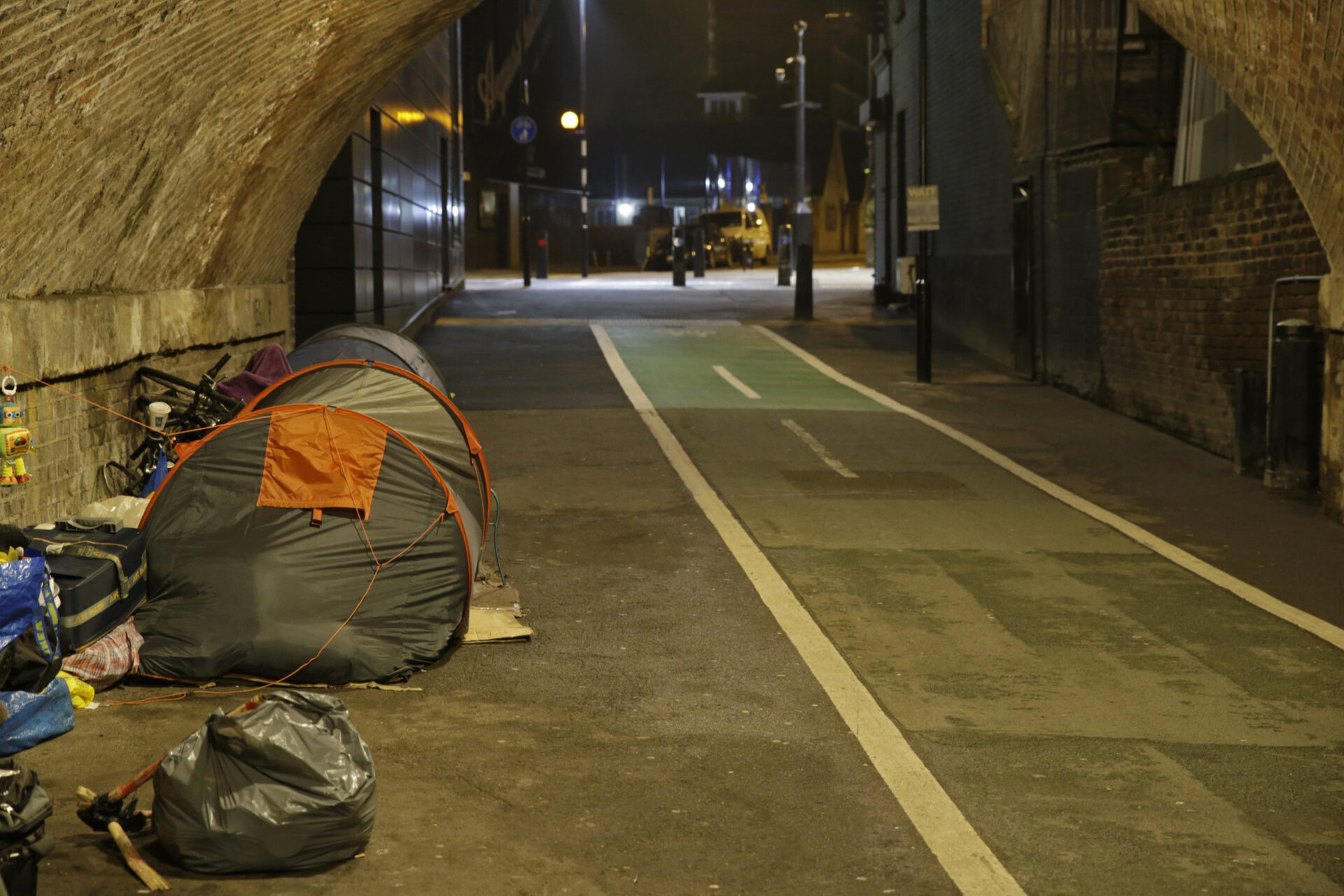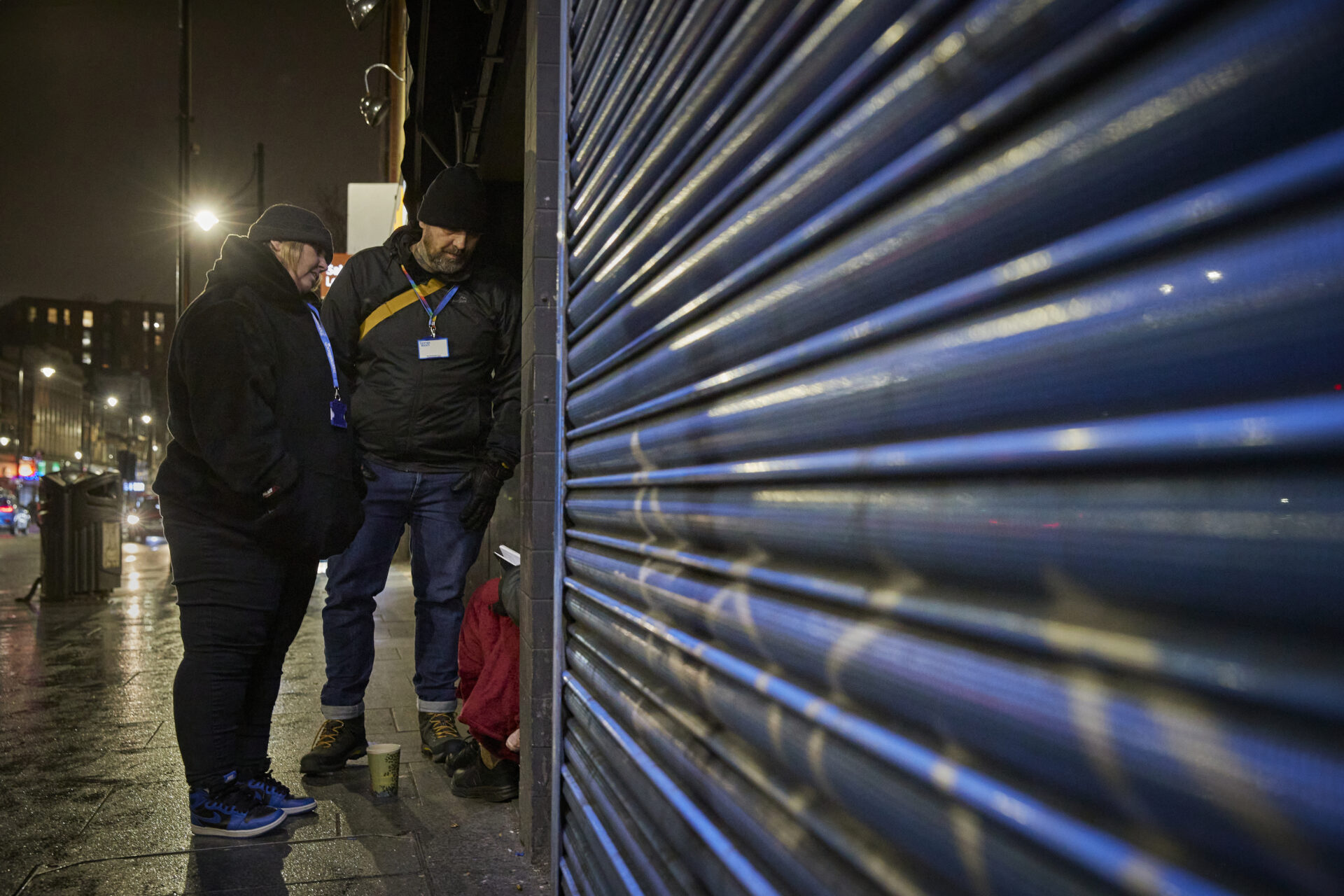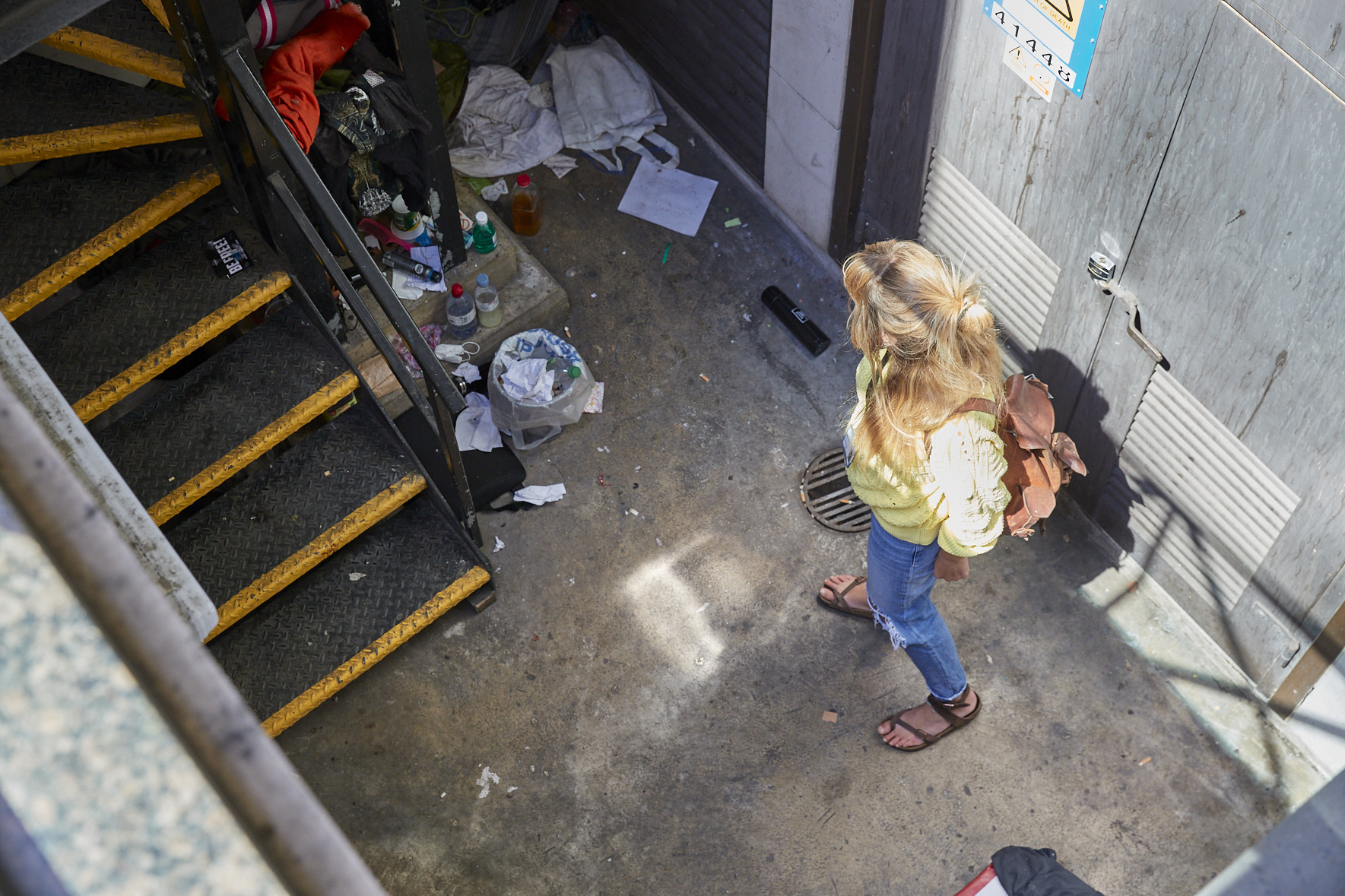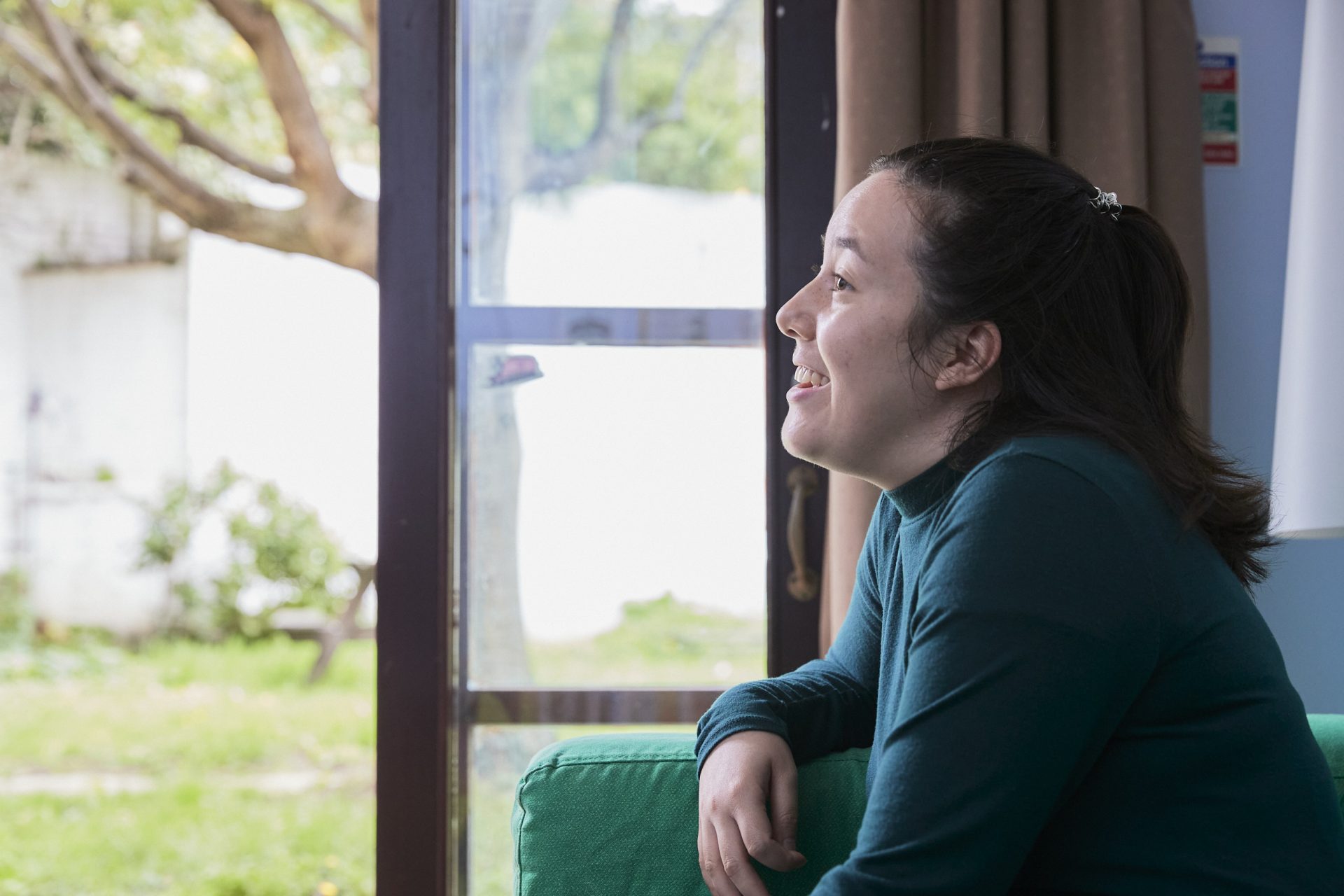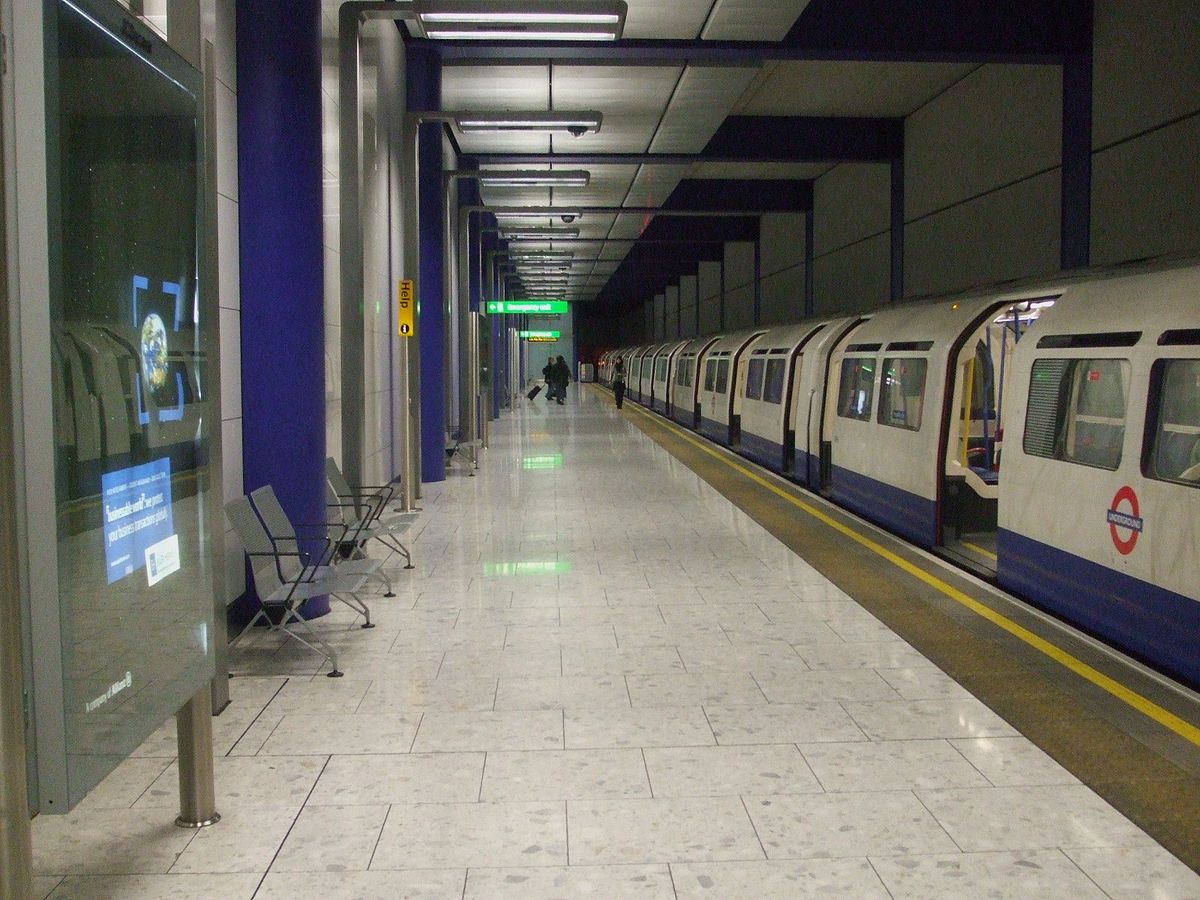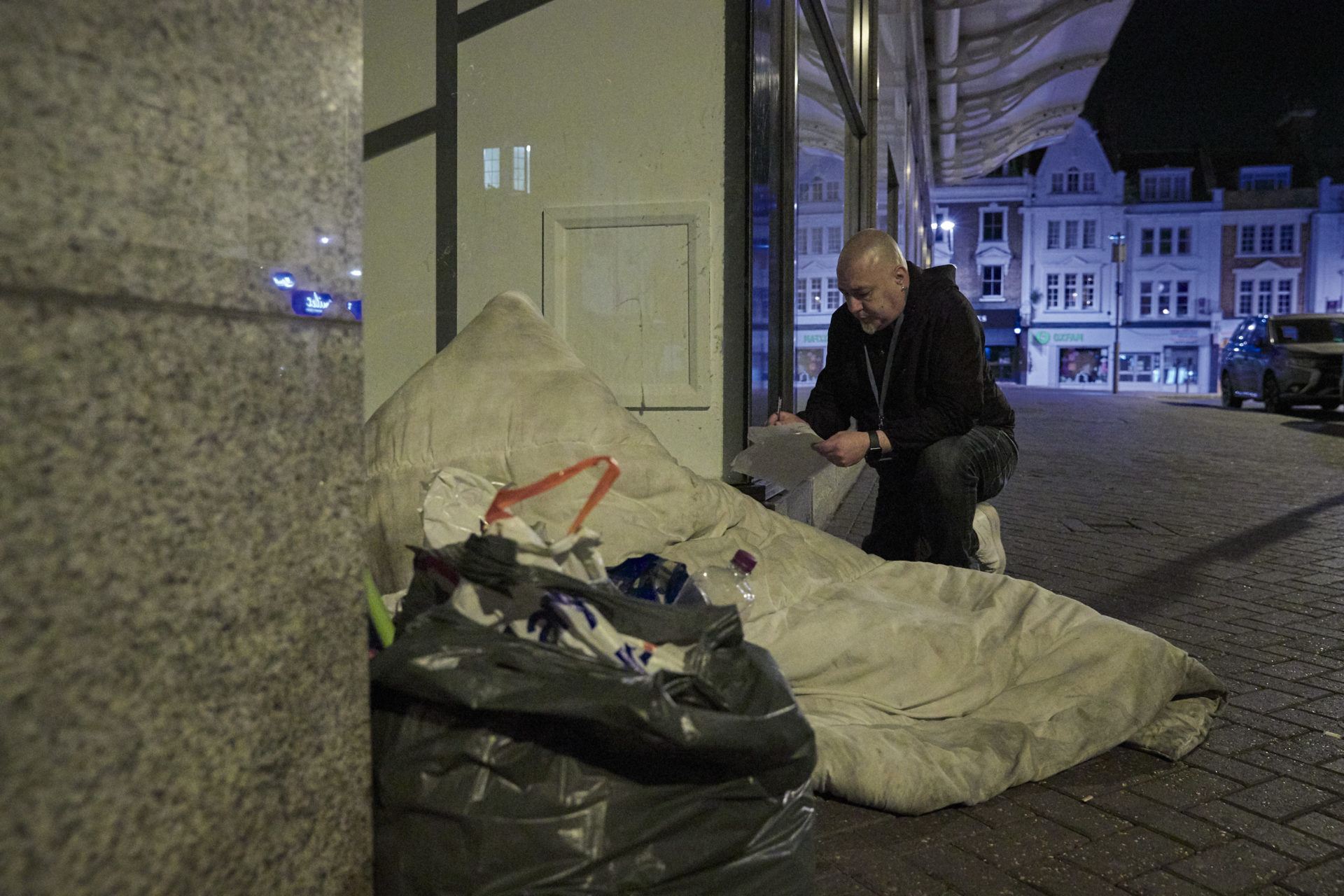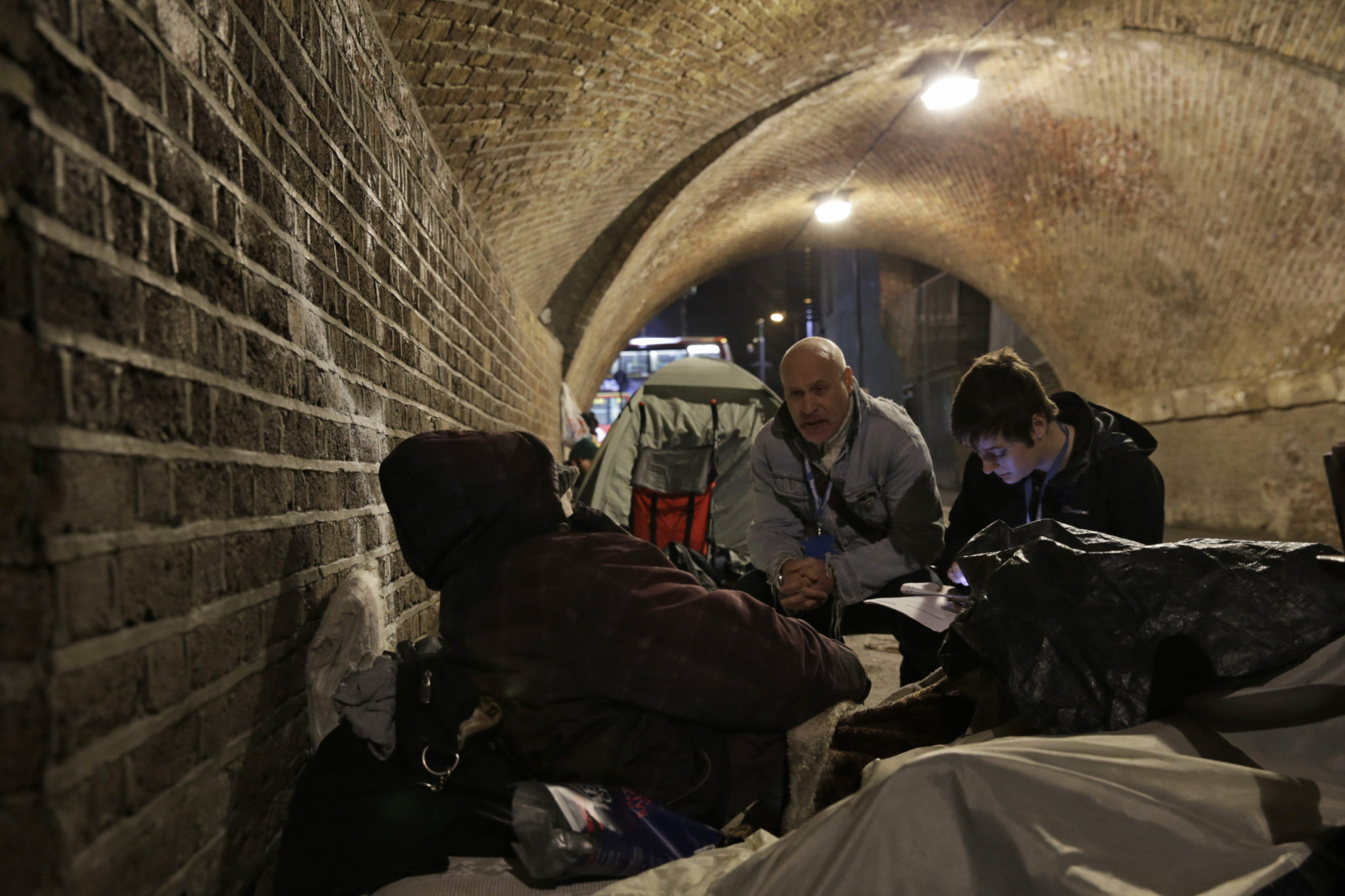7 July 2020
Along with forty other homelessness organisations across the UK, our Chief Executive Bill Tidnam has signed an open letter to the Prime Minister on behalf of Thames Reach, calling on extra commitment to ensuring that those helped by the ‘Everyone In’ initiative are still supported after lockdown is lifted. The letter outlines that, whilst the £105million pool of funding recently announced by the government will help, there are other barriers unique to this situation which must be addressed. Read the full letter here.
2 July 2020
As part of the recovery from the effects of Covid, Thames Reach are supporting people who have been temporarily accommodated in hotels across London to take the next step into stable accommodation.
Our newly established team, PSL (Private Sector Leasing), will sit within our floating support services working with people to start their tenancy well and support their wellbeing going forward. Thames Reach have the highest aspirations for those we work with, and the team will provide personalised support to help people realise their goals, ensuring that those accommodated by the ‘Everyone In’ initiative are suitably supported.
The PSL team are hiring now, across Support Worker, Senior Practitioner and Lead Manager roles. More information can be found here.
24 June 2020
Thames Reach welcome the government’s new £105million pool of funding to further support those who moved into the hotel system during the pandemic. We have been running hotels during this time, which are now closing due to our teams’ successful efforts in helping people move on, mainly into housing in the private rented sector; these individuals are now receiving support to ensure that they do not return to the streets.
This additional funding will help Thames Reach to continue this work of helping vulnerable and homeless people into secure, long-term accommodation. We acknowledge that this group has a range of needs; while some people currently in hotels will need access to long term supported accommodation, many will need help finding employment and getting a regular income as the key step towards finding their own housing. We will continue to help people make these important steps which have the potential to give them the stability they need to move away from homelessness.
Beyond people currently accommodated in hotels, we need to recognise that we are seeing increased numbers of new rough sleepers on to the streets, and that central government, local authorities and charities need to be able to respond quickly and effectively to prevent these people becoming part of a long-term homeless population.
17 June 2020
The ‘Everyone In’ project brought over 90% of the people known to be rough sleeping or accommodated in unsuitable shelter accommodation into hotels during quarantine, but now as the scheme is coming to a close, our focus is moving to ensuring that people have access to secure accommodation, and the support they need to sustain it.
Thames Reach are helping people move on so that no one is left to go back to the streets. Our hotel for asymptomatic people in Westminster has now closed and there is a dedicated team providing support in moving people to new accommodation. The majority of residents in our hotel have been moved on, many to the private rented sector, and three have been relocated to another of the hotels while they receive further support they need to move on. Our Tenancy Sustainment Team will be expanding to ensure that we are able to provide support after the point of being settled into accommodation. More on the expansion of this service will be announced soon.
1 June 2020
Yesterday’s press briefing from central government included Dame Louise Casey, head of the Covid Rough Sleeping Taskforce. She said a few words about how the action is moving forward. She said that the ‘Everyone In’ initiative has been incredibly successful, having temporarily re-housed 15,000 people across England, allowing them to self-isolate and ultimately saving their lives in a pandemic. ‘Everyone In’ was a public health response to the crisis and a compassionate one. It has been an extraordinary response and highly collaborative, and Dame Louise thanked all agencies who have contributed to the process; we now must take this further and change lives for good.
Thames Reach are now working with the residents of the hotels and are securing move-on options for those without secure accommodation, to ensure no one is put back on the streets. More information to come soon.
26 May 2020
Today saw central government announce a £433million investment for 6,000 homes for rough sleepers. Our Chief Executive, Bill Tidnam, says: “We welcome the investment in accommodation and crucially support for rough sleepers. The challenge is now to mobilise this fast, to let people get out of hotels and move on with their lives. We also need to make sure that we are able to use established approaches to continue to respond quickly and appropriately to people who are new to the streets before their homelessness becomes a way of life.”
Ministry of Housing, Communities and Local Government press release: ‘6,000 new supported homes as part of landmark commitment to end rough sleeping’
11 May 2020
As part of the response to the current pandemic we have opened a ‘Covid care’ hotel in Newham. Working with staff from UCL hospital and MSF, the hotel provides temporary accommodation for those who have contracted the disease, after which they return to the hotel or hostel where they were staying. This replaces the hotel in Westminster, which is now a ‘Covid protect’ scheme. Médicins Sans Frontieres (MSF) have put together a short video explaining the work that is being done at the Covid Care Hotel.
We have begun to work with people housed in hostels and other temporary accommodation by the Greater London Authority and local authorities, with the aim of this work being to conduct assessments with a view to identifying future accommodation options. It’s worth noting that a very significant proportion of this group do not have a settled status, and unless this is resolved it is likely to be a significant barrier to future options. We will be outlining our issues and concerns for homeless and vulnerable people during the transition period in a statement to be released later in the process.
5 April 2020
Thames Reach have been working with several agencies and partners to provide people sleeping rough at Heathrow Airport with a clean room and all meals to allow them to self-isolate effectively, in line with city-wide efforts to ensure that the most vulnerable are not left behind during the pandemic. We are incredibly proud of the work of our team as well as those from other organisations in what was a successful project. Support will now continue between the various organisations involved. Read the full story here.
2 April 2020
Alongside many other of the UK’s providers in the homelessness sector, Thames Reach have co-signed an open letter to the Prime Minister expressing gratitude for the responses of local and central government in allowing us to provide temporary accommodation to people sleeping rough. However we have also clarified our needs going forward to help the most vulnerable groups. The letter is available to read here.
30 March 2020
We are working with our partners, local authorities and other services to ensure that no one is left rough sleeping during these times of a global pandemic.
Thames Reach are working closely with our partners including local authorities, the Greater London Authority and Heathrow in order to get people who are rough sleeping in Heathrow into single room accommodation where they can follow government guidelines on self-isolation and social distancing. Given the numbers of people involved this is a complex task, requiring us not only to obtain suitable accommodation, but also provide appropriate help as well as food and other services. Other types of ‘shelter’ accommodation which involve high levels of sharing are not suitable in the current pandemic.
Currently, anyone worried about someone rough sleeping is urged to contact Street Link, who will allow our teams to locate anyone in need of support. Anyone homeless or rough sleeping can contact the local authority (either independently or with the help of a support worker) and as hotel spaces suitable for self-isolation become available, which will be quicker than normal, they will be accommodated. We are continuing to provide outreach support 365 days a year. Provisions in hotels are being confirmed and progress is being made daily in order to make self-isolation possible. The pre-existing requirement of a local connection to a particular borough before receiving help has been lifted at this time.
27 March 2020
Last week, the government appointed Dame Louise Casey to lead its strategy on ensuring people experiencing rough sleeping are supported during the spread of COVID-19. At Thames Reach, we welcome the development of this strategy to protect the health of homeless people and the broader population. We are working as hard as we can to maintain essential services, such as outreach, hostels, supported housing and remote tenancy support. In addition, we are working with the Greater London Authority and local authorities to provide shelter for people experiencing homelessness, with hotel spaces allocated for those showing COVID-19 symptoms.
The basic principles of the strategy are to:
– focus on people who are, or are at risk of, sleeping rough, and those who are in accommodation where it is difficult to self-isolate, such as shelters and assessment centres
– make sure that these people have access to the facilities that enable them to adhere to public health guidance on hygiene or isolation, ideally single room facilities
– utilise alternative powers and funding to assist those with no recourse to public funds who require shelter and other forms of support due to the COVID-19 pandemic
– mitigate their own risk of infection, and transmission to others, by ensuring they are able to self-isolate as appropriate in line with public health guidance.
We will continue to update this page with news as the crisis develops.
26 March 2020
During the coronavirus pandemic, vulnerable people and those experiencing street homelessness are even more at risk of health complications and require increased levels of support. At Thames Reach, we are prioritising our essential services, as well as working with our partners on developing new emergency services, so that we can continue to effectively support vulnerable people and safeguard their health. Rough sleeping can have a devastating impact on mental and physical health, and many people living on the street have serious underlying health conditions, and so during this period, when most of the population is being asked to stay at home, it is absolutely essential that we are able to provide people without a home of their own a place where they can safely self-isolate and receive the support that they need.
In order to meet these needs, we are working with the Greater London Authority and other local authorities and have a team coordinating rooms in a hotel in south-west London where homeless people who are showing symptoms of COVID-19 can self-isolate, whether they are street homeless or in a night shelter.
There is a rota of morning, late and night shifts covering the hotel. We are recruiting new staff to help with this urgent project, and in some cases staff are being re-deployed from other services to assist.
We are working with an on-site team of nurses and doctors to check on those self-isolating. The healthcare team decide when people can be discharged and leave. We welcome them, show them their rooms and provide them with breakfast, lunch, dinner and snacks. For this element we are seeking partnerships with food outlets to help supply the large volume of extra food required. All this care is undertaken with full personal protective equipment (PPE) for staff, and PPE is given to the client as they arrive. Contact with guests and clients is mainly via phone and food is left for them at their doors. We are looking at expanding this service as the situation develops, as we are currently at a capacity for 32 people but will need to grow with demand.
As this is a large undertaking, Thames Reach are recruiting new staff, volunteers and seeking new partnerships to assist with food and PPE supplies during this unprecedented time. If you would like to help us keep the most vulnerable safe with your time or resources, please do get in touch at: enquiries@thamesreach.org.uk
18 March 2020
At Thames Reach, we are closely monitoring developments relating to the spread of COVID-19 in order to best ensure the health and wellbeing of the homeless and vulnerable people we work with, as well as of our staff, volunteers, and the wider public. We are following advice issued by Public Health England and continuing conversations with commissioners, local providers, and health services so we can use the resources we have wisely, and to ensure that we are able to respond to this rapidly changing situation.
Our outreach teams work 365 days of the year, and we continue to go out to find people who are sleeping rough, offering them the support they need to get off the streets. These teams are advised to follow guidance provided by Public Health England with regard to people sleeping rough who are displaying coronavirus symptoms, and we are calling upon local authorities to provide environments where individuals can safely and securely self-isolate.
On behalf of Thames Reach, our Chief Executive, Bill Tidnam, has co-signed a letter to the government, along with senior figures from across the homelessness sector, outlining a set of measures that we believe will help protect homeless and vulnerable people during this ongoing crisis. This outline includes the request that homeless people should be allocated self-contained accommodation with sufficient resources with which to self-isolate. People who are rough sleeping are three times more likely to suffer with chronic illnesses including asthma and chronic obstructive pulmonary disease, and so must be supported as a matter of urgency.
The open letter can be read here, which we have signed with Crisis, Homeless Link, St Mungo’s, Centrepoint, The Passage, Groundswell, Shelter Cymru, Homeless Network Scotland and Connection at St Martin’s.
Thank you for your ongoing support during this challenging time.
